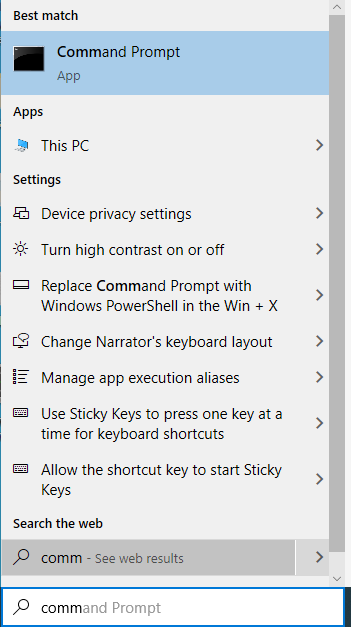Posted :
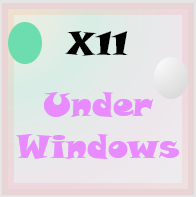
- The setup? you might ask, is what?
- Well, it is simple enough,
what is needed
, is to have a C/C++ compiler, and an X11 server installed.
- Hmmm, okay fair enough, but how is this done?
- Well, why not just use
Cygwin ,
to just do all that.
- Any details?
- Well first, you must download
Cygwin
, and later on, just follow the instructions,
shown in the following pictures.
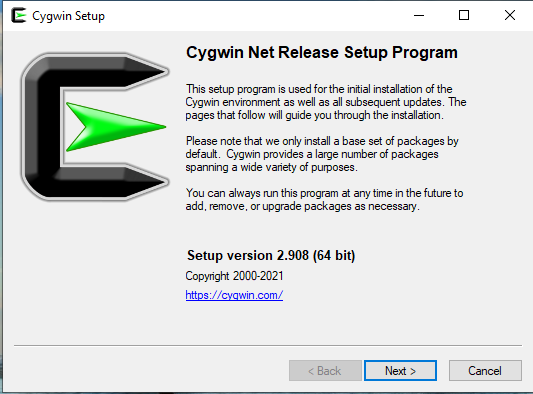
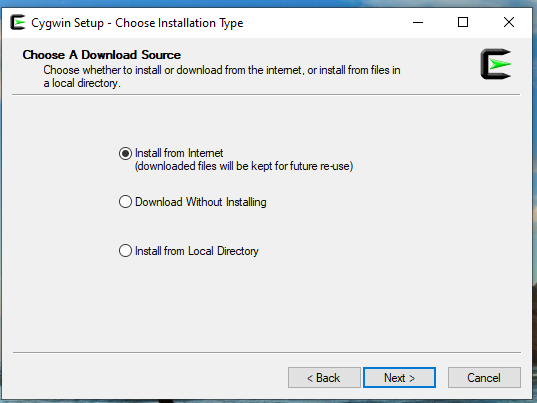
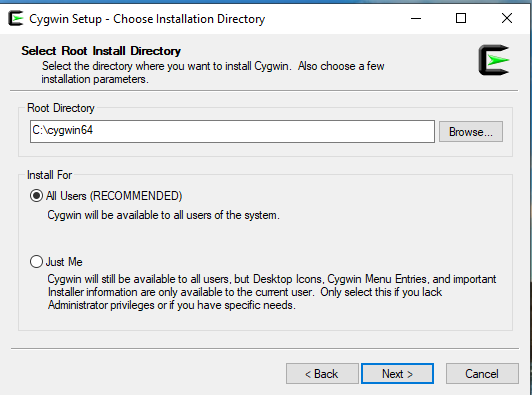
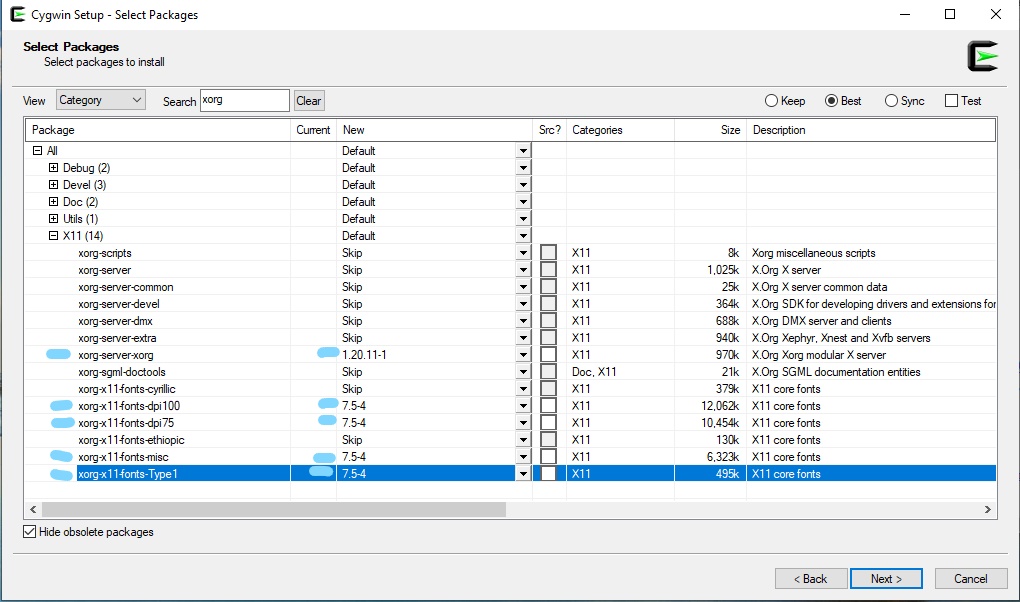


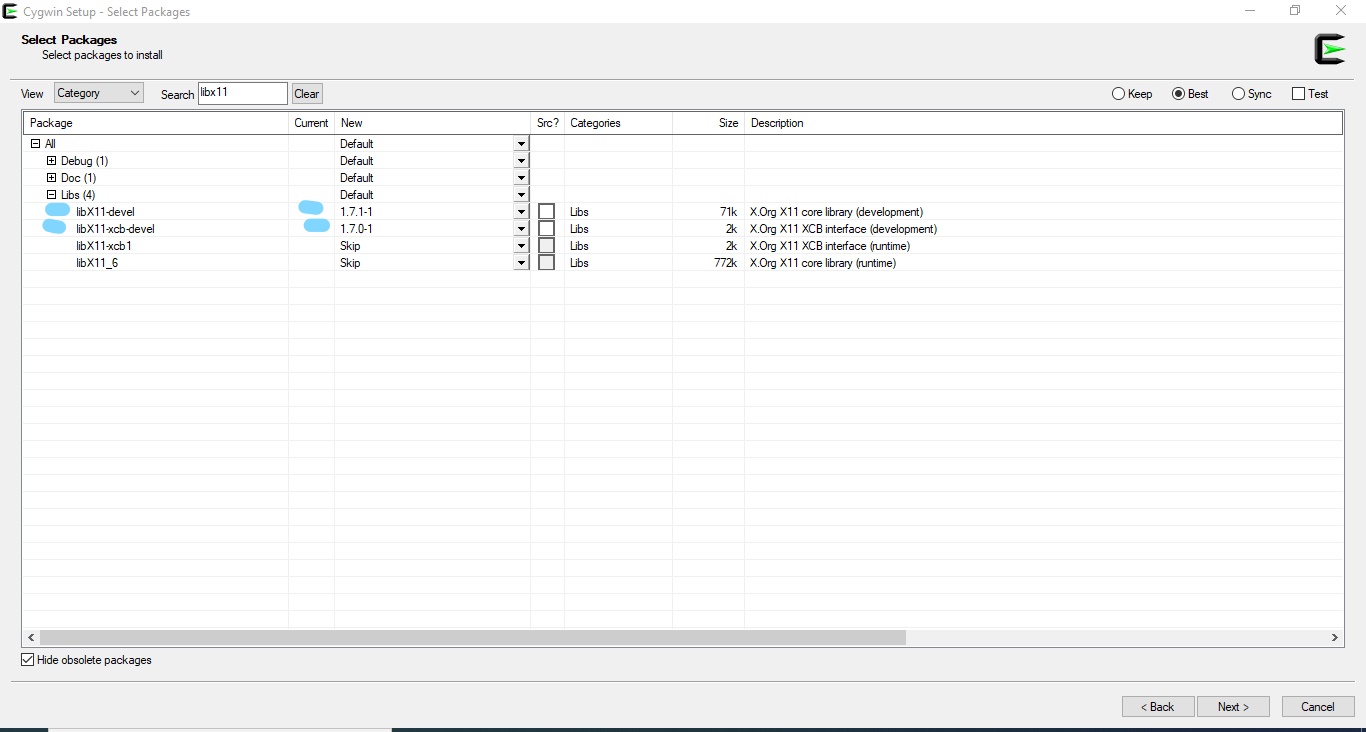
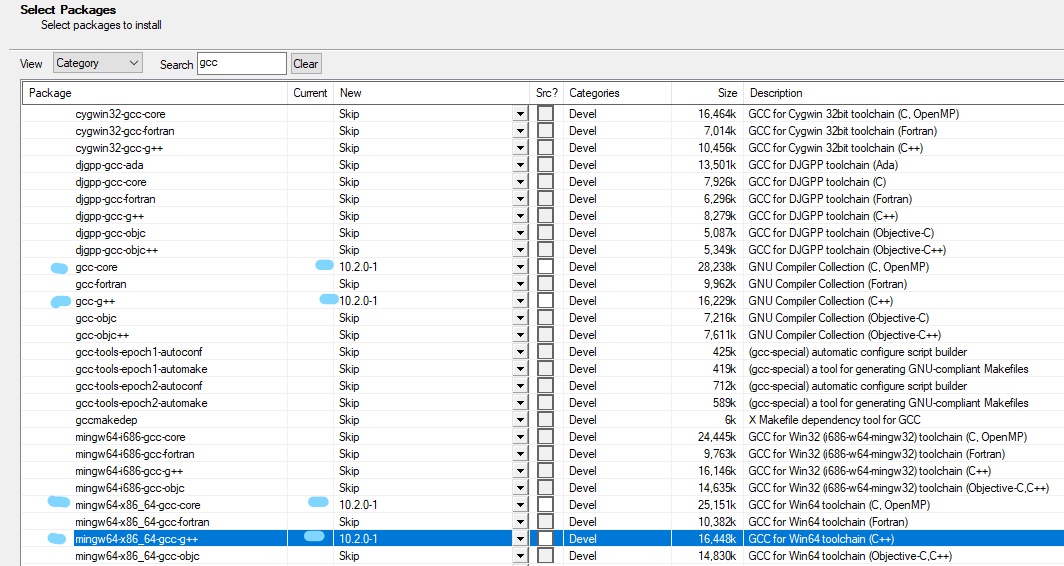
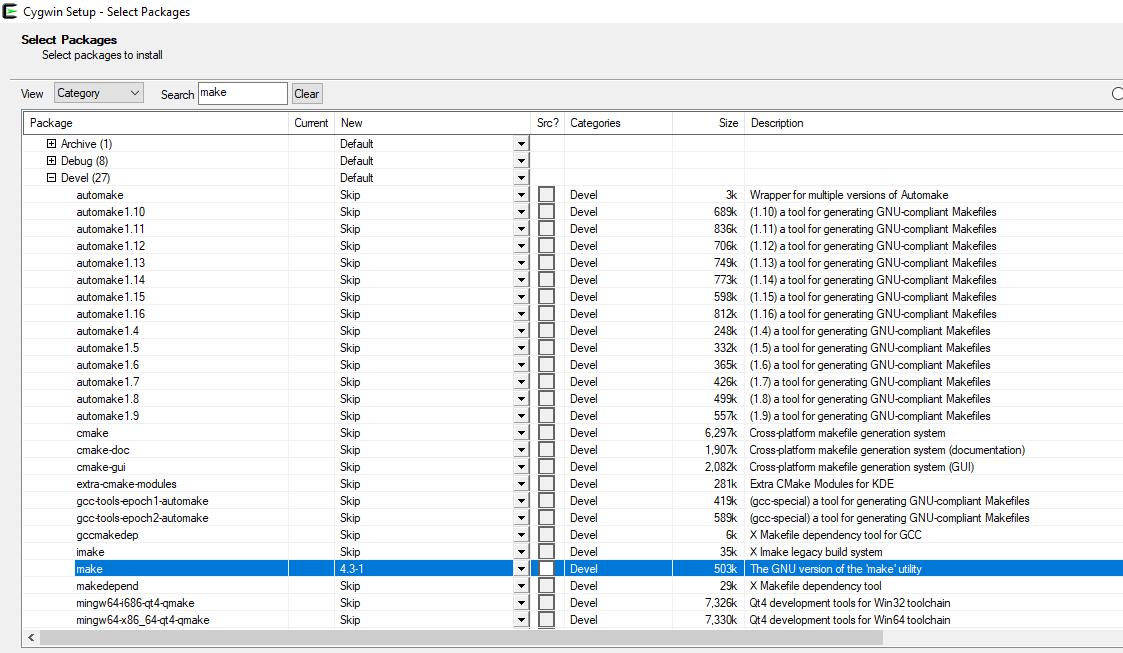


- I have some problems with pictures, any textual details?
- Sure, so
what was selected
, in these pictures, was:
gcc-coregcc-g++mingw64-x86_64-gcc-coremingw64-x86_64-gcc-g++makegdbxorg-server-xorgxorg-x11-fonts-dpi-75xorg-x11-fonts-dpi-100xorg-x11-fonts-miscxorg-x11-fonts-Type-1xinitxlaunchlibX11-devellibX11-xcb-developensshgit
- That is it?
- Well yes, optionally, if you want like to have an X
desktop environment,
like
kde, or
mate
or
gnome
, or
xfce, you can also select one of those.
gnome-flashbackkde-workspacelxde-commonmate-session-managerxfce4-session 
- That is it?
- Additionally, you can select emacs, and nano, which are just some ,
text editors
if that suits you.
emacsemacs-w32nano
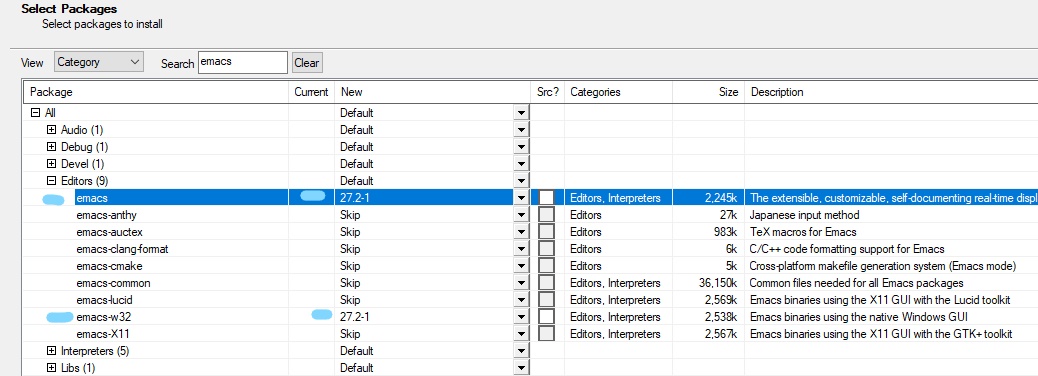
- Well, yes, it is actually quite simple. So, after that, what is the next step?
- Just
run the program
, named xwinserver, and launch your Cygwin terminal.
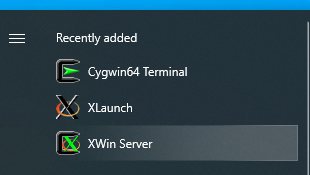
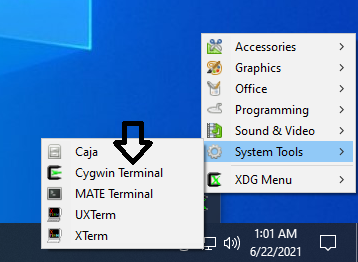
- Done, next?
- Why not
write and compile
a simple X11 program ?
- Sure, how ?
- open your text editor, for example nano, and paste the following code,
and save it, as for example demo_app.c.
/* nano demo_app.c */
#include <X11/Xlib.h>
#include <X11/Xutil.h>
#include <stdbool.h>
#include <stdio.h>
#include <stdlib.h>
#include <string.h>
/* Global variables */
Display* display;
int root_window ;
int main_window_id;
XFontStruct* font_9_15;
int color_black = 0x00000000;
int color_gray = 0xff333333;
int color_white = 0xffffffff;
GC gc_white;
void
get_display_conn
( ){
char* connection_string = NULL;
if ((display = XOpenDisplay (connection_string )) == NULL ){
fprintf (stderr, "Error: XOpenDisplay (%s )\n", connection_string );
exit (EXIT_FAILURE );}
root_window = XDefaultRootWindow (display );}
void
load_font
( ){
char *font_name = "9x15";
if ((font_9_15 = XLoadQueryFont (display , font_name )) == NULL ){
fprintf ( stderr, "Cannot load the font %s", font_name );
exit (EXIT_FAILURE );}}
void
get_gc_white
( ){
XGCValues values;
unsigned long valuemask = 0;
gc_white = XCreateGC (display, root_window, valuemask, &values );
XSetFont (display, gc_white, font_9_15 -> fid );
XSetForeground (display, gc_white, color_white ); }
void
create_main_window
(int argc, char* argv [ ] ){
int main_window_x = 0;
int main_window_y = 0;
int main_window_width = 300;
int main_window_height = 300;
unsigned int main_window_border_width = 0;
unsigned long main_window_border_pixel_value = color_white;
unsigned long main_window_background_pixel_value = color_gray;
main_window_id = XCreateSimpleWindow (
display ,
root_window ,
main_window_x ,
main_window_y ,
main_window_width ,
main_window_height ,
main_window_border_width,
main_window_border_pixel_value ,
main_window_background_pixel_value );
XSizeHints* size_hints ;
if (!(size_hints = XAllocSizeHints ( ))){
fprintf (stderr, "failure to allocate memory to size_hints " );
exit (EXIT_FAILURE );}
size_hints -> flags = PWinGravity;
size_hints -> win_gravity = StaticGravity ;
XClassHint* class_hints;
if (!(class_hints = XAllocClassHint ( ))){
fprintf (stderr, "Failure to allocate memory to class_hints" );
exit (EXIT_FAILURE );}
class_hints -> res_name = "demo_app";
class_hints -> res_class = "demo_class";
XWMHints* wm_hints ;
if (!(wm_hints = XAllocWMHints ( ))){
fprintf (stderr, "Failure to allocate memory to wm_hints" );
exit (EXIT_FAILURE );}
wm_hints -> flags = StateHint | InputHint ;
wm_hints -> initial_state = NormalState;
wm_hints -> input = True;
char *main_window_title = "Demo app";
XTextProperty x_main_window_title;
if (XStringListToTextProperty (&main_window_title, 1, &x_main_window_title ) == 0 ){
fprintf (stderr, "Failure to allocate x_main_window_title " );
exit (EXIT_FAILURE );}
char *main_window_icon_name = "Demo app icon";
XTextProperty x_main_window_icon_name;
if (XStringListToTextProperty (&main_window_icon_name, 1, &x_main_window_icon_name ) == 0) {
fprintf (stderr, "Failure to allocate x_main_window_icon_name" );
exit (EXIT_FAILURE );}
XSetWMProperties ( display,
main_window_id,
&x_main_window_title,
&x_main_window_icon_name,
argv,
argc,
size_hints,
wm_hints,
class_hints );
XFree (size_hints );
XFree (wm_hints );
XFree (class_hints );}
void
draw_kudos_text
( ){
char* kudos_text = "Kudos, you have done it :)";
int count_kudos_text = strlen (kudos_text );
int width_kudos_text = XTextWidth (font_9_15, kudos_text, count_kudos_text );
XDrawString (display,
main_window_id,
gc_white,
10 , //x
20 , //y
kudos_text,
count_kudos_text );}
void
handle_events
( ){
XEvent xevent;
while (true ){
XNextEvent (display, &xevent );
switch (xevent .type ){
case Expose:
if (xevent .xexpose .count == 0 ){
draw_kudos_text ( );}
default:
break; }}
XCloseDisplay(display);}
int
main
(int argc , char *argv [ ] ){
get_display_conn ( );
load_font ( );
get_gc_white ( );
create_main_window (argc , argv );
XSelectInput (display, main_window_id, ExposureMask );
XMapWindow (display, main_window_id );
handle_events ( );
return 0;}
- Done, next?
-
Compile it using gcc,
as follows,
$ gcc demo_app.c -lX11
- Done, what is next.
- Just
run the resultant program,
as in ./a.exe, and that is it ,
you are set for creating and running X11 apps under windows.
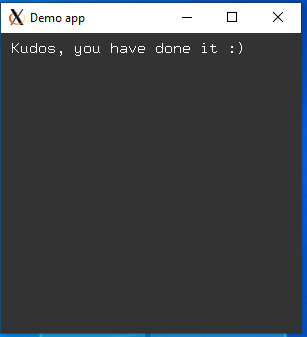
- What about other apps, or running for example a desktop environment.
- Well, if you have installed a desktop environment, as previously shown, you
can just launch its GUI applications from the menu,
which you can launch as shown earlier.
- Okay, not bad, what if I want to add,
another application?
- Well just search for it, and using the Cygwin installer,
install it, and after that, just launch it.
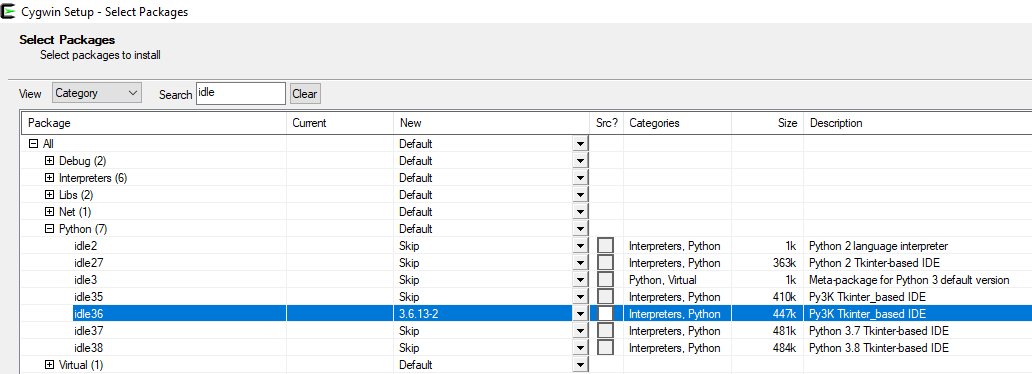
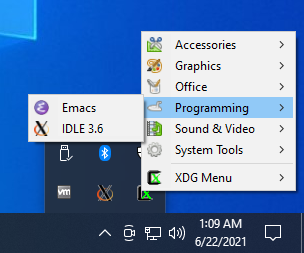

- Can Cygwin commands, be
added to the environment?
- Yes, I don't see a problem, just edit your path, and add the following two directories.
C:\cygwin64\binC:\cygwin64\usr\local\bin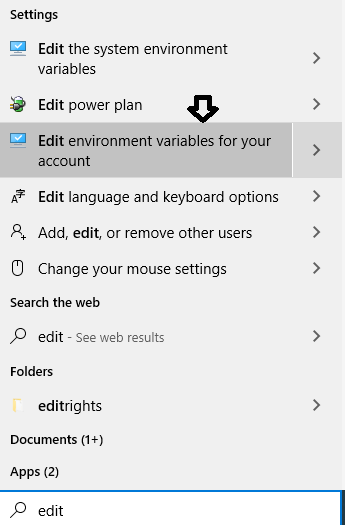
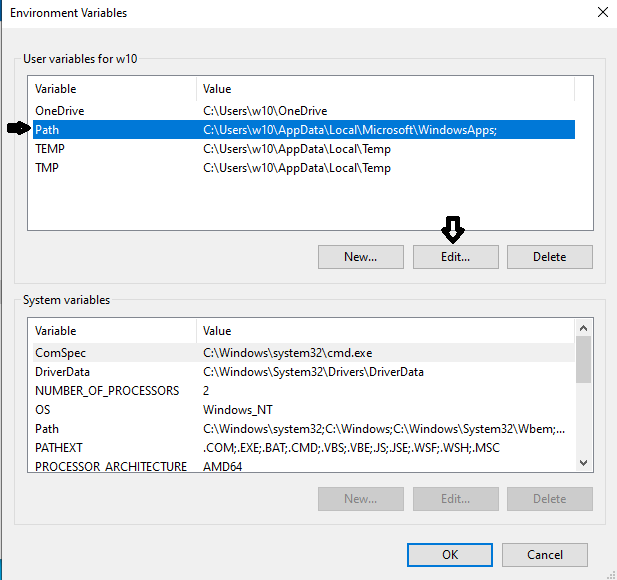
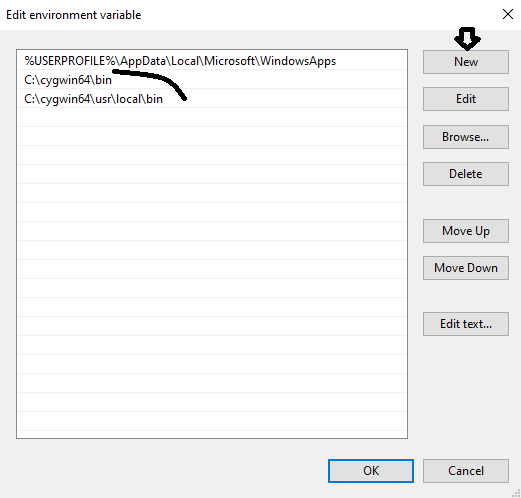
- And now you
can use Unix commands,
such as ls, or
git or whatever,
from the windows command program, or they are just available
and accessible, in your environment.
